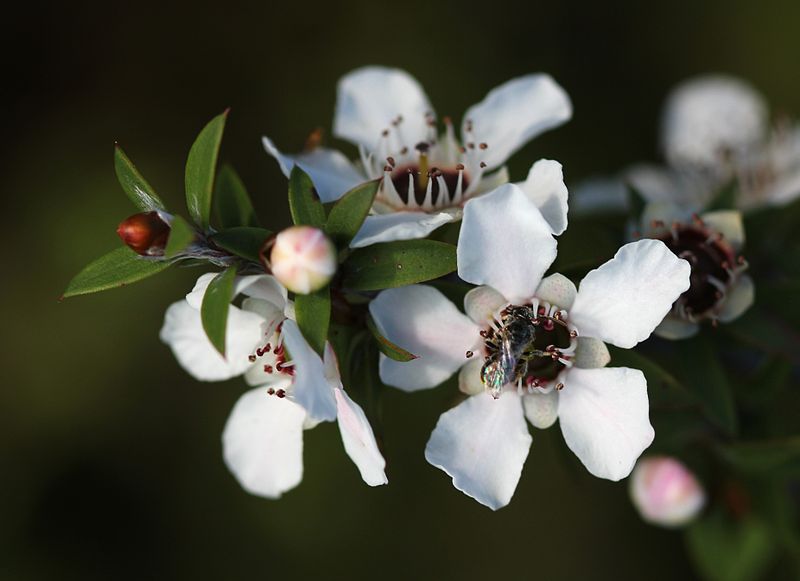The New Zealand Government is to issue formal guidelines on the labelling of manuka honey.
New Zealand’s food safety minister Nikki Kaye said that action was needed to properly define manuka honey and “to enable truth in labelling in the absence of an international standard for a definition of manuka honey”.
The New Zealand Government’s response follows the questioning of the integrity of some products labelled as manuka honey and allegations that ‘fake’ products had entered the market in several countries, including Britain.
In the summer, the UK’s Food Standards Agency announced a crackdown on suppliers of ‘fake’ manuka honey products after tests by the Food and Environment Research Agency (FERA) showed that 11 out of 23 manuka honey brands on sale in the UK failed to demonstrate non-peroxide antibacterial activity (NPA), the distinguishing characteristic of genuine manuka honey.
FERA highlighted what it called the “confusing” labelling of honey. Following publication of its research some suppliers have been accused by the manuka honey industry of charging premium prices for non manuka products.
But arguably the potential for confusion is added to by the fact that different labelling systems operate even within New Zealand.
The industry generally uses either one of two tests to determine genuine manuka honey – non-peroxide antibacterial activity (NPA), or Methylglyoxal (a component unique to the manuka plant), abbreviated to MGO. Some manuka honey brands use the trademarked UMF (Unique Manuka Factor) labelling system to indicate NPA levels, others have developed their own laboratory protocols to conduct rigorous testing of NPA and MGO.
Minister Kaye said: “The New Zealand honey industry has been working for many years to come up with an accurate way to label, market and brand manuka honey and unfortunately has been unable to reach consensus. There is no international standard for a definition of manuka honey.”
Some genuine manuka honey brands believe their products are being deliberately discredited amid on-going wrangling over labeling systems within the manuka honey industry itself.
Peter Harwood, director and founder of Planet Health – UK distributor of specialist manuka honey brand Watson & Son – told Natural Products: “it’s important for all genuine brands of manuka honey to work together in promoting the many positive benefits of this amazing product. He added that Watson & Son meets the highest testing standards and that all products passed recent testing completed by UK Trading Standards as a follow up to the Sunday Times story.
“It’s important for all genuine brands of manuka honey to work together in promoting the many positive benefits of this amazing product”
 Watson & Son CEO, Warren Peat, said that specialist manuka honey producers were already proactively working on the issue. He said: “As a member of the group of major producers representing over 85% of the genuine manuka honey exported from New Zealand, we are going even further than the NZ Government, publishing Guidelines that may see all exporters independently audited to ensure that their product is true to label before it leaves the country. In the future, it looks increasingly likely that all genuine product will carry a quality mark that consumers can reference electronically from their smartphone, to ensure that each supplier has a current accreditation to supply genuine NZ manuka honey.
Watson & Son CEO, Warren Peat, said that specialist manuka honey producers were already proactively working on the issue. He said: “As a member of the group of major producers representing over 85% of the genuine manuka honey exported from New Zealand, we are going even further than the NZ Government, publishing Guidelines that may see all exporters independently audited to ensure that their product is true to label before it leaves the country. In the future, it looks increasingly likely that all genuine product will carry a quality mark that consumers can reference electronically from their smartphone, to ensure that each supplier has a current accreditation to supply genuine NZ manuka honey.
“The NZ Manuka Honey industry believes that there are sufficient markers in this special product that will discriminate the genuine from the fake brands, and consumers are urged to be discerning in their purchasing decisions while this new initiative is being brought to market.”
Picture: Genuine manuka honey brands like Watson & Son meet the highest testing standards



